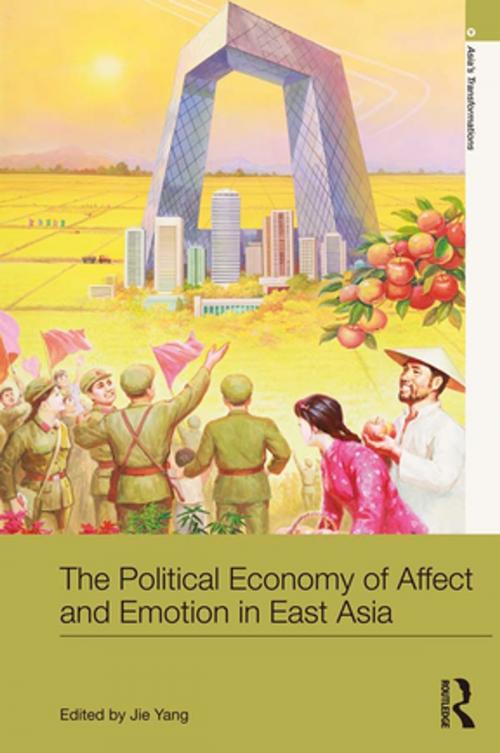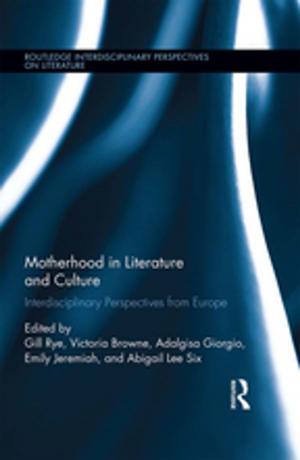The Political Economy of Affect and Emotion in East Asia
Nonfiction, Social & Cultural Studies, Social Science, Cultural Studies, Ethnic Studies, Anthropology, Sociology| Author: | ISBN: | 9781134634644 | |
| Publisher: | Taylor and Francis | Publication: | May 9, 2014 |
| Imprint: | Routledge | Language: | English |
| Author: | |
| ISBN: | 9781134634644 |
| Publisher: | Taylor and Francis |
| Publication: | May 9, 2014 |
| Imprint: | Routledge |
| Language: | English |
When thinking about the culture and economy of East Asia, many attribute to the region a range of dispositions, including a preference for consensus and social harmony, loyalty and respect towards superiors and government, family values, collectivism, and communitarianism. Affect is central to these concepts, and yet the role of affect and its animated or imagined potentialities in the political economy of East Asia has not been systematically studied. The book examines the affective dimensions of power and economy in East Asia. It illuminates the dynamics of contemporary governance, and ways of overcoming common Western assumptions about East Asian societies. Here, affect is defined as felt quality that gives meaning and imagination to social, political, and economic processes, and as this book demonstrates, it can provide an analytical tool for a nuanced and enriched analysis of social, political, and economic transformations in East Asia.
Through ethnographic and media analyses, this book provides a framework for analyzing emerging phenomena in East Asia, such as happiness promotion, therapeutic governance, the psychologization of social issues, the rise of self-help genres, transnational labor migration, new ideologies of gender and the family, and mass-mediated affective communities. Through the lens of affect theory, the contributors explore changing political configurations, economic engagements, modes of belonging, and forms of subjectivity in East Asia, and use ethnographic research and discourse analysis to illustrate the affective dimensions of state and economic power and the way affect informs and inspires action.
This interdisciplinary book will be of great interest to students and scholars of Asian studies, anthropology, sociology, media studies, history, cultural studies, and gender and women’s studies.
When thinking about the culture and economy of East Asia, many attribute to the region a range of dispositions, including a preference for consensus and social harmony, loyalty and respect towards superiors and government, family values, collectivism, and communitarianism. Affect is central to these concepts, and yet the role of affect and its animated or imagined potentialities in the political economy of East Asia has not been systematically studied. The book examines the affective dimensions of power and economy in East Asia. It illuminates the dynamics of contemporary governance, and ways of overcoming common Western assumptions about East Asian societies. Here, affect is defined as felt quality that gives meaning and imagination to social, political, and economic processes, and as this book demonstrates, it can provide an analytical tool for a nuanced and enriched analysis of social, political, and economic transformations in East Asia.
Through ethnographic and media analyses, this book provides a framework for analyzing emerging phenomena in East Asia, such as happiness promotion, therapeutic governance, the psychologization of social issues, the rise of self-help genres, transnational labor migration, new ideologies of gender and the family, and mass-mediated affective communities. Through the lens of affect theory, the contributors explore changing political configurations, economic engagements, modes of belonging, and forms of subjectivity in East Asia, and use ethnographic research and discourse analysis to illustrate the affective dimensions of state and economic power and the way affect informs and inspires action.
This interdisciplinary book will be of great interest to students and scholars of Asian studies, anthropology, sociology, media studies, history, cultural studies, and gender and women’s studies.















